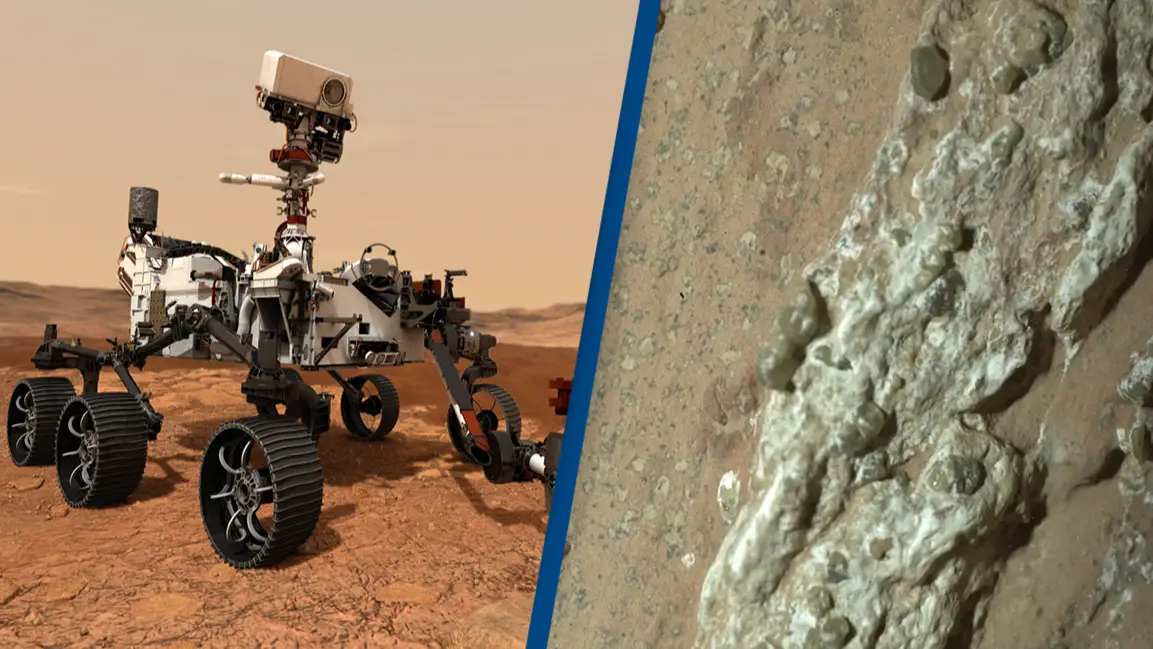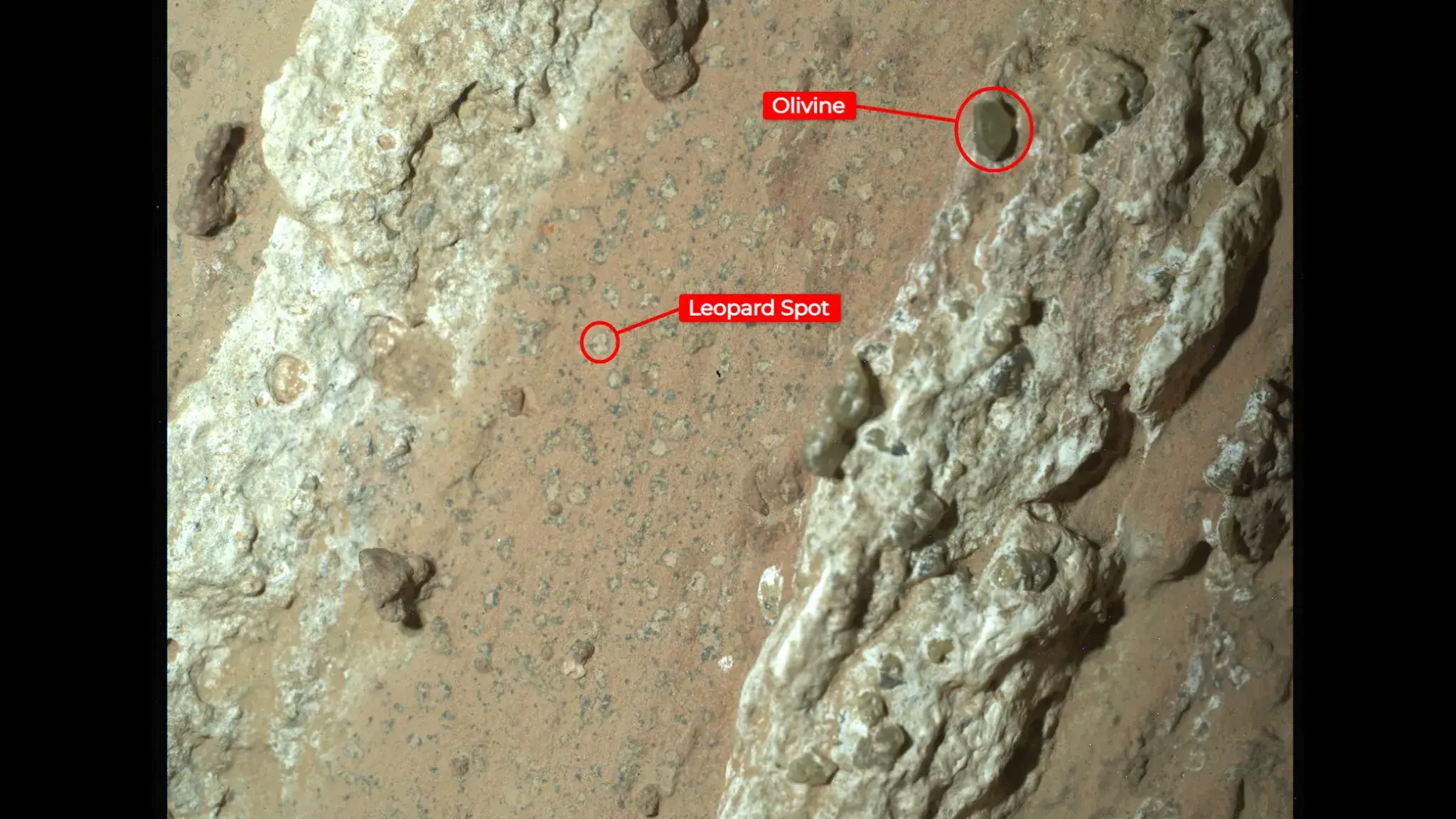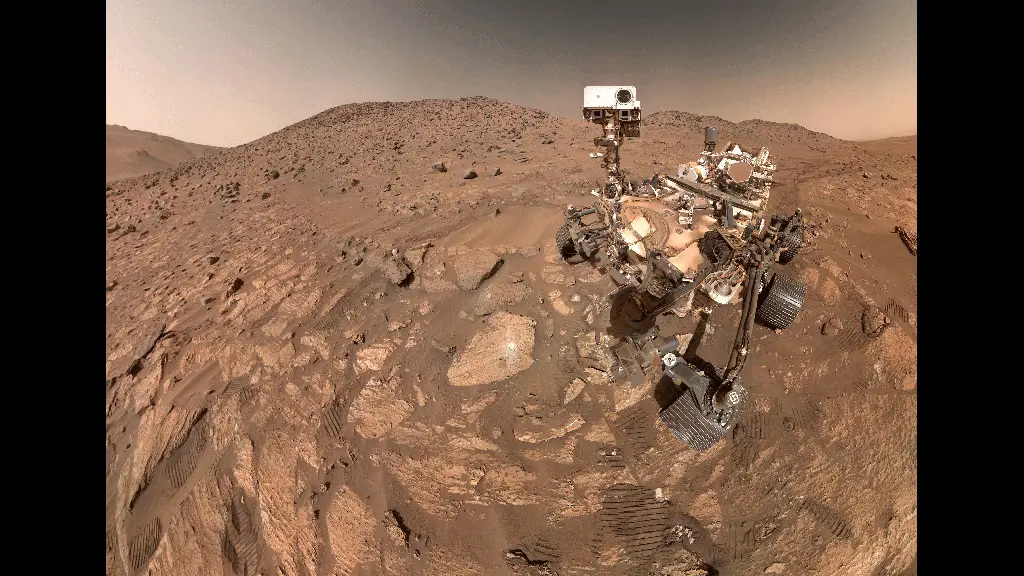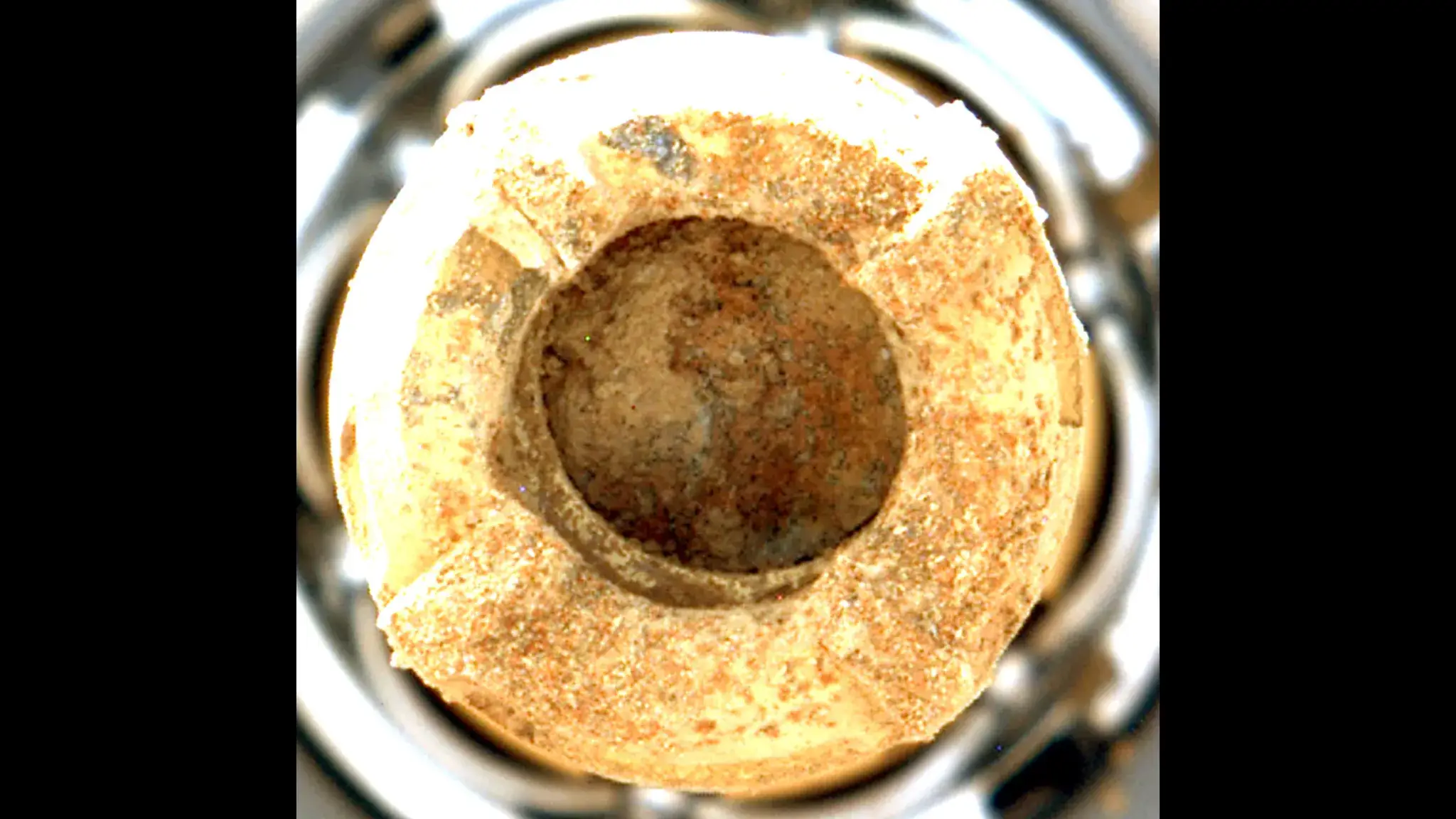
NASA may have just stumbled upon a sign of life on Mars. Get excited.
Since the dawn of space exploration, the answer to whether or not humans are in fact alone in this big, old universe has probably been the most anticipated, yet ambiguous, topic scientists have tried to research.
And while it seems we've been pulling at loose strings forever, a recent discovery made by NASA's Perseverance rover is the first of its kind and could pave the way for more information on our alien, likely bacterial, friends.
Advert
On July 21, 2024, a vein-filled rock was found by the rover that immediately caught the attention of NASA's scientists for exhibiting signatures that are typically — but not always — a sign of life.
Nicknamed 'Cheyava Falls,' the arrowhead-shaped rock is 3.2 feet by 2 feet wide and possesses qualities, specifically colored spots, that are typically indicators of ancient life.
See, things like discoloration are chemical reactions and structures that are usually formed by life. In this case, the rock was probably exposed to microbial life billions of years ago.

Now what further supports that theory, is that the rock was found in an area on Mars, called Neretva Vallis, which is an ancient river valley that used to have running water many, many years ago.
This likely means that water — which is essential for life — passed through the rock at some point, giving a plausible reason for its possession of organic compounds.
Now, while these carbon-based molecules are usually considered to be the building blocks of life, they can also be formed by non-biological processes which has our friends at NASA looking into more options to explain the rock's unique appearance — just in case it wasn't actually the aliens, you know?

On this incredible find, NASA's associate administrator for its Science Mission Directorate Nicola Fox shared: "We have designed the route for Perseverance to ensure that it goes to areas with the potential for interesting scientific samples.
"This trip through the Neretva Vallis riverbed paid off as we found something we've never seen before, which will give our scientists so much to study."
Doubling down on Fox's comments, Ken Farley, a project scientist behind the rover, said: "Cheyava Falls is the most puzzling, complex, and potentially important rock yet investigated by Perseverance.

"On the one hand, we have our first compelling detection of organic material, distinctive colorful spots indicative of chemical reactions that microbial life could use as an energy source, and clear evidence that water — necessary for life — once passed through the rock.
"On the other hand, we have been unable to determine exactly how the rock formed and to what extent nearby rocks may have heated Cheyava Falls and contributed to these features."
While time will tell how Cheyava Falls actually came to be, its discovery is still incredibly exciting and could mean a huge change in our understanding of Mars.
